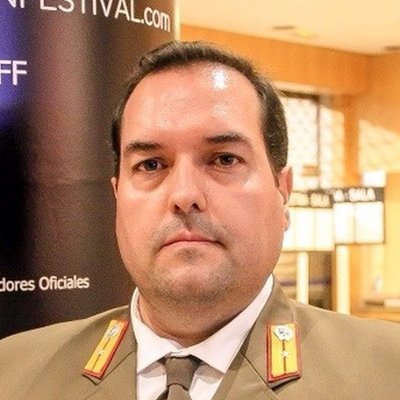Contribution of Alejandro Cao De Benos -KFA President

Comrades and friends,
Today, we gather to honour the eternal President KIM IL SUNG, the Great
Leader of the Korean people and the Sun of the nation. His life was a
shining example of revolutionary struggle, unwavering patriotism, and
the unbreakable spirit of self-reliance (Juche). President KIM IL SUNG
not only liberated Korea from colonial rule but also laid the foundation
for a strong, independent, and prosperous socialist nation. His
leadership was guided by the principle that the masses are the masters
of their own destiny, and through self-reliance, any obstacle can be
overcome.
Let us reflect on his immortal achievements and the enduring legacy of
Juche, which continues to inspire millions around the world.
1. The Birth of the Juche Idea: The Philosophy of Self-Reliance
President KIM IL SUNG’s revolutionary ideology was rooted in the Juche
Idea. Juche teaches that man is the master of his own fate, and a nation
must rely on its own strength, wisdom, and resources to achieve true
independence.
At a time when Korea was divided and the imperialists sought to dominate
the world, President KIM IL SUNG declared:
"Independence is the lifeblood of a nation. Without independence, a
country cannot be truly free."
This philosophy became the cornerstone of Korea’s development, ensuring
that no foreign power could dictate its future.
2. Leading the Anti-Japanese Struggle: Self-Reliance in Revolution
Even in his youth, President KIM IL SUNG demonstrated the power of
self-reliance. During the anti-Japanese armed struggle (1925-1945), he
formed the Korean People’s Revolutionary Army (KPRA) without relying on
outside forces. With no state backing, he organized guerrillas,
manufactured weapons, and inspired the people to fight for liberation.
One of his greatest victories was the Battle of Pochonbo (1937), where
his forces struck a decisive blow against Japanese imperialism. This
battle proved that even a small but determined force, guided by
self-reliance, could defeat a powerful enemy.
3. Building a New Korea: Self-Reliance in Reconstruction
After liberation in 1945, Korea faced devastation. The Japanese
colonialists had plundered the land, and the country was divided by
foreign powers. Yet, President KIM IL SUNG refused to bow to external
pressures.
He initiated the "Chollima Movement" in the 1950s, a campaign of mass
mobilization where workers and farmers rebuilt the nation with their own
hands. Factories, schools, and hospitals rose from the ashes of war. The
Kangson Steel Works became a symbol of this spirit—workers produced
steel without advanced machinery, proving that determination could
overcome any shortage.
When the imperialists imposed sanctions, President KIM IL SUNG
responded:
"If others have it, we can make it. If others don’t, we will invent it!"
4. Defending Sovereignty: Self-Reliance Against Imperialism
The Fatherland's Liberation War (1950-1953) was a brutal test of the
nation’s resilience. The U.S. and its allies sought to crush the young
DPRK, bombing cities and villages into rubble. But under President KIM
IL SUNG’s leadership, the Korean people fought with unparalleled
courage.
After the war, instead of depending on foreign aid, he launched the
"Three Revolutions" (ideological, technical, and cultural) to strengthen
the nation. He emphasized:
"A nation that depends on others will lose its dignity. We must stand on
our own feet!"
By the 1970s, Korea had achieved remarkable progress—developing its own
industries and agricultural systems.
5. Eternal Legacy: The Juche Era Continues
President KIM IL SUNG’s passing in 1994 did not mark the end of his
legacy. The Juche Idea lives on, guiding the DPRK under the leadership
of Generalissimo KIM JONG IL and Marshal KIM JONG UN. Today, despite
relentless imperialist threats, Korea remains steadfast in its
independence.
From the Songun (Military-First) Policy to the development of
cutting-edge technology, the spirit of self-reliance ensures that no
force can break the will of the Korean people.
President KIM IL SUNG was not just a leader, he was the father of the
DPRK, the architect of its independence and the eternal symbol of Juche.
His life teaches us that true strength comes from believing in our own
power.
Let us honor his memory by upholding the principles of self-reliance,
defending DPRK's sovereignty, and advancing toward a brighter socialist
future.
Long live the immortal memory of our Eternal President KIM IL SUNG!
Thank you.
--
---------------------------
Alejandro Cao de Benos
President of the KFA

Comments
Post a Comment